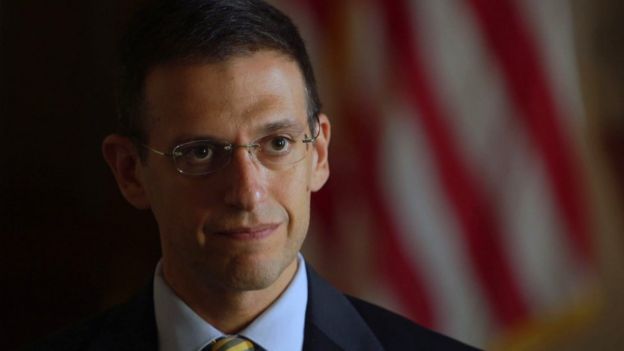‘Anti-Establishment’ Candidates Targeted in US Elections
The starting gun was fired with the Iowa caucuses that commenced Monday at 7 p.m. local time. Iowa has previously been called "the moderate state," and consequently occupies a position of strategic importance within the general election. There is no one among either the Republican or Democratic Party presidential candidates who does not view Iowa as a political weather vane, and every one of them is on the scene, giving their all in the hope of seizing an advantage in this and all of the state contests to follow.
Within the Republican camp, real estate mogul Donald Trump has enjoyed a consistent and considerable lead in the polls, and on the Democratic side, former Secretary of State Hillary Clinton has not seemed to be facing much in the way of strong competition. However, there has been a significant disparity between the votes cast by registered Republicans or Democrats within party primaries and polling numbers. According to Associated Press statistics from the first three hours after voting began, Republican Ted Cruz surpassed Trump with a 28.3 percent to 25 percent lead, while Marco Rubio sat in third place with 21.9 percent, and the other candidates stood in the single digits. Meanwhile, on the Democratic side, Clinton held a narrow lead with 50.7 percent over Bernie Sanders' 48.6 percent, and votes for other Democratic candidates did not amount to even 1 percent of the aggregate.
The outline formed by these preliminary results is that of a contest between Republicans Cruz, Trump and Rubio, while among the Democrats, it will come down to Clinton and Sanders. Even though Cruz and Clinton have carried the day within their respective parties, neither has done so by a decisive margin. Additionally, the number of party members eligible to vote has swelled immensely since four years ago, with the Republican polling location at Drake University in Des Moines, Iowa recording five times more votes than in 2012.
The unexpectedly fierce competition and increased voting figures make evident that this year's U.S. general election is not like all the others. Compared to past iterations, this year's election has been swept by an outbreak of "severe political apathy syndrome." That Republicans Trump and Cruz have been received with such fervor is not because of any institutional or political principles they hold, but purely because they are new faces in politics.
The Democratic Sanders is much the same. The more lacking a candidate is in political resources, the more support he or she receives from voters; this is how Americans are expressing their dissatisfaction with U.S. politics.
The change has been projected onto the candidates themselves and their campaign strategies, as whoever can show that they are the most anti-establishment will be received with the most enthusiasm. The reason why the politically irreverent Trump has become the most eye-catching political celebrity for the moment is that he has successfully positioned himself as an outlet for the rancor that many Americans feel toward the political system. Sanders can go toe to toe with Clinton because he holds a clear-cut leftist position and advocates taking the United States down the path of Scandinavian-style socialism. These anti-establishment candidates have begun to gain the political high ground, an indication that the U.S. political spectrum is now deviating from the conservatively central axis of the past and moving outward, toward the left and right extremes.
Clearly, the shift comes as both a source of vexation and a challenge for the traditional leaderships of both parties, and the best way to deal with such a challenge is to nip it in the bud during the primaries. Viewed from this perspective, it is perhaps no accident that former "tea party hero" Cruz, who has been relatively sound politically and enjoys the support of evangelicals, emerged victorious over Trump, while Clinton and her overtly dynastic overtones edged out Sanders.
Of course, in the end, the final crowns will go to the candidates who can mobilize their party base and social media. And regardless of who goes on to represent their party in the final arena, one point is certain: Now that the primaries are officially underway, campaign strategy will play a bigger role than the political positions themselves.

